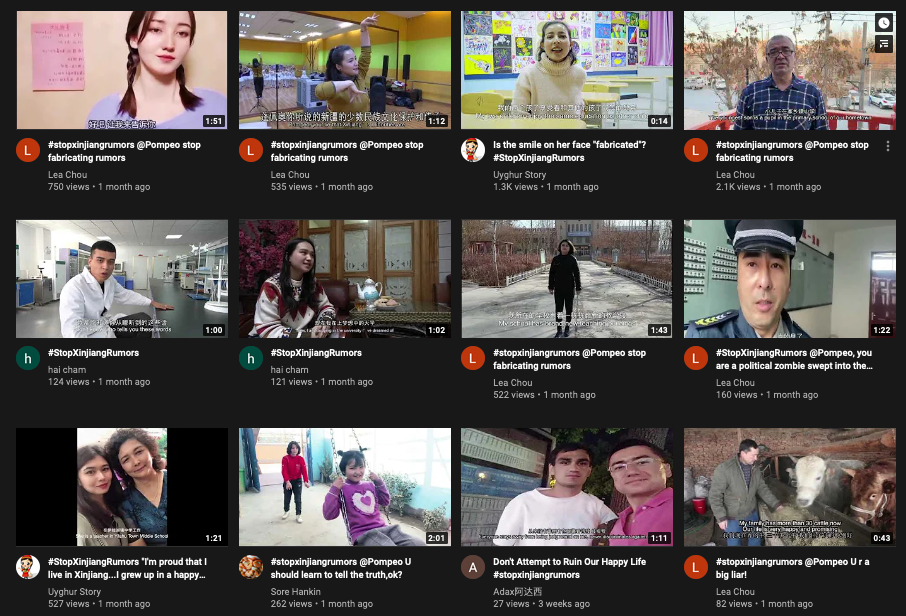US media is reporting that Inna Afinogenova, former deputy director of Russia Today’s Spanish-language subsidiary and one of Russia’s top propagandists in Latin America, has resigned from her job over Russia’s invasion of Ukraine. In a video posted on YouTube, Afinogenova said she “won’t do war propaganda.” According to a Washington Post: report:
May 8, 2022 Born in southern Russia, Afinogenova is a charismatic communicator in Spanish, a language she speaks with remarkable fluency. She rose to become Russia Today’s biggest star in Latin America. […] Over the years, Afinogenova has produced quirky videos mocking the very idea of Russian propaganda and claims of election interference in Latin America, criticizing Venezuelan opposition leader Juan Guaidó, and defending Venezuela’s dictator, Nicolás Maduro. In the months leading up to the invasion, Afinogenova used her RT platform to dismiss the possibility of a Russian assault. “January will come, then February and March; 2022 will end … and surely you will continue to read in the mainstream media that Russia’s invasion of Ukraine is imminent,” Afinogenova posted in December. “Those of us who follow this conflict know that those who warn time and again of a supposed imminent invasion don’t do it because they’re ignorant, but because it’s all part of a plan.” After Russia’s invasion, Afinogenova, usually an avid user of Twitter, fell silent. A week after the war began, she posted a defiant thread, criticizing the “blockade” against Russia’s state media. “They FINALLY found a reason to end even a hint of an inconvenient narrative,” she tweeted. Then, this week, 70 days into the brutal war she once dismissed, Afinogenova posted a video in Spanish on YouTube. “I am recording myself. There won’t be any of the graphics or special effects,” she says. “I owe you an explanation.” Afinogenova goes on to announce her resignation from Russia Today. “Basically, I disagree with this war,” she explains. “I will never understand or justify any war that goes after civilians.” Afinogenova then seems to hint at Russia Today’s true nature: “I won’t talk about whether the platform I’ve worked for all these years does propaganda. Truth is, I don’t know. But I, personally, won’t do war propaganda.”
Read the rest here.
The Global Influence Operations Report reported earlier this week that Actualidad RT, which has 200 Spanish-speaking employees and offices in Venezuela, Cuba, and Argentina, has amassed more than 18 million followers on Facebook and almost six million on YouTube. This outstrips the English-language RT, banned in most Western countries over disinformation. Other GIOR reporting on Russia’s information operations in Latin America has included:
- In April, we reported that Russian social media influence operations are succeeding outside Western information spaces where antipathy for the West is deep and sympathy for Russia real.
- In February, we reported that Russian state-owned Spanish-language media outlets are outperforming their US counterparts by 3 to 1, suggesting that Russia is winning the information war on Ukraine with Spanish speakers.
- In November, we reported that Actualidad RT was the second most-watched Spanish-language news channel on YouTube.
In 2017, the NYT characterized RT (formerly Russia Today) as follows:
Analysts are sharply divided about the influence of RT. Pointing to its minuscule ratings numbers, many caution against overstating its impact. Yet focusing on ratings may miss the point, says Peter Pomerantsev, who wrote a book three years ago that described Russia’s use of television for propaganda. “Ratings aren’t the main thing for them,” he said. “These are campaigns for financial, political and media influence.” RT and Sputnik propel those campaigns by helping create the fodder for thousands of fake news propagators and providing another outlet for hacked material that can serve Russian interests, said Ben Nimmo, who studies RT for the Atlantic Council. Whatever its impact, RT is unquestionably a case study in the complexity of modern propaganda. It is both a slick modern television network, dressed up with great visuals and stylish presenters, and a content farm that helps feed the European far right. Viewers find it difficult to discern exactly what is journalism and what is propaganda, what may be “fake news” and what is real but presented with a strong slant.









COMMENTS
Comments are closed here.